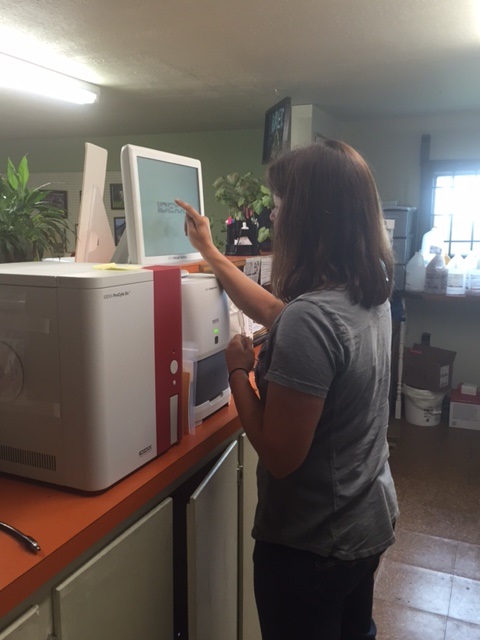Taking A Closer Look: How Blood Tests Can Add To Your Horse’s Exam
There are times when your veterinarian might advise running some “bloodwork” on your horse, but why? What information is gained, and how might it help? The answer depends on the specific tests run. Obviously, there are blood tests to detect the presence of specific viruses and bacteria that cause diseases, but what about the hematology and chemistry tests?
First, an explanation of what the tests are and what they reveal. The hematology tests analyze the components of the blood, which are the red blood cells, the white blood cells, and the total solids (proteins) in the blood. Red blood cells carry oxygen to the tissues in the body, and too few red blood cells are called anemia. Red cell numbers can fall because of a lack of production if the bone marrow is being suppressed by inflammation or other illnesses, loss due to bleeding somewhere in the body, or inappropriate destruction, which can occur with a number of diseases. An increase in red cells is usually associated with dehydration, but rarely, horses with liver disease produce too many red cells. White blood cells are the soldiers of the immune system, and changes in the population of white cells can indicate inflammation. Depending on the change in the white cells, your veterinarian may also gain information about the severity and nature of the inflammation.
The biochemical analysis, or chemistry, is a panel of tests that reflect the function of different organ systems of the body, and can also indicate inflammation. Information is available on a standard chemistry test about the health of the liver, kidneys, muscles, and intestines.
There are a number of situations in which hematology and chemistry can be useful in managing a horse’s health care. The most obvious case is when a horse is showing signs of illness, such as fever, cough, weight loss, loss of appetite, change in manure, etc. The information gained from the blood work can point the veterinarian toward the cause of the disease, which will determine treatment, and also give vital information about the severity of the problem, which may change the approach to treatment (at home vs. in a clinic) or the expected outcome of treatment. Periodic blood tests during treatment help the veterinarian know how the horse is responding to treatment.
Sometimes, it is helpful to run bloodwork on healthy horses. The most common reason to run blood tests on healthy horses is to monitor the health of older horses. Just as we tend to develop problems as we age, horses may develop age-related problems as they grow older. Running hematology and chemistry yearly can help to catch liver, kidney, and sometimes endocrine problems early when intervention is most likely to be helpful. Another group of healthy horses in which routine blood work can be helpful is the population of horses that are maintained on medication long-term. Any medication given over time can have systemic effects, and monitoring the health of the organs with simple blood tests can catch liver or kidney problems, gastrointestinal inflammation, or anemia early before they make the horse sick. Including blood work in your horse’s yearly exam, especially if he is older than 15 years old or on “maintenance” medication or supplements, may help your veterinarian optimize his health and well-being.

